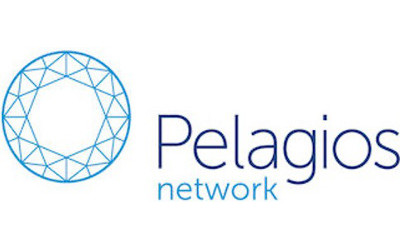Using open research for shared approaches in the arts and humanities: some hidden gems

By Dr Shafquat Towheed, Director of Research, School of Arts & Humanities, Faculty of Arts and Social Sciences.
Introduction
The Open University’s Open Research Data Online (ORDO) repository contains a wealth of data sets and resources designed to be reused by researchers and shared with the public. In celebration of Open Research Week, I have selected three ‘hidden gems’ in ORDO from researchers in the School of Arts and Humanities in the Faculty of Social Sciences. As we shall see, the principles of ‘open research’ are at the heart of much of what we do in Arts and Humanities subjects. Each of these ‘hidden gems’ presents research that is free to the public and open for reuse, and each of them demonstrates the socially beneficial impact of that research.
Hidden gem 1 in English and Creative Writing: Expressive Writing and Telling: how to help people impacted by conflict, gender-based violence and in palliative care settings
Academic Lead: Dr Siobhan Campbell, English & Creative Writing.
About
Siobhan Campbell’s publicly engaged research involves taking expressive writing and telling practices into communities and groups that have been affected by conflict, gender-based violence and in palliative care settings in the health service. In her work with women in Lebanon, Campbell set up expressive writing and telling workshops in partnership with the organisation the Akkar Network for Development (AND). Through the process of writing stories and poems, the workshops enabled women to find their own voice, develop their confidence and start to deal with longstanding and sometimes multiple traumatic events; many of the participants were refugees. Campbell’s methodology has been adopted by many charities, health trusts and non-governmental organisations and there is now a training curriculum as well, so that this intervention can be replicated in different settings.
Resources
- Learn about the principles of creative writing interventions outlined by Siobhan Campbell (and Meg Jensen) in Writing Interventions
- Watch the short film by Siobhan Campbell (2022) Creative and Expressive Writing from Lebanon: a short film (in Arabic with English translation). The film features women from Akkar in Lebanon reading aloud selections work on sensitive topics produced during Expressive Writing and Telling workshops.
- Explore the pre- and post-event questionnaires from people participating in Expressive Writing and Telling workshops in Lebanon and hear how they benefitted from taking part. Campbell, Siobhan Campbell, Sally Blackburn-Daniels and Meg Jensen (2022). Questionnaires and data-gathering in crisis: adapted methodologies for delivery and implementation of Expressive Writing and Telling in Crisis, Lebanon. The Open University. Dataset.
- Find out more about the ways in which you can develop expressive writing for your own participatory and activism programmes by looking at Siobhan Campbell and Meg Jensen (2022). Using Expressive Writing and Telling in GBV programs: A Training Curriculum for Social Workers and Human Rights Defenders. The Open University. Online resource.
Hidden gem 2 in Music: Tinnitus and the Arts: using creative workshops to share the lived experience of tinnitus
Academic Lead: Dr Marie Thompson, Music.
About
Marie Thompson’s research involves the lived experience of people with tinnitus, usually thought of as a high-pitched ringing sound in the ears which has no external source. Up to 30% of the population will have tinnitus at some point in their lives. Working with the British Tinnitus Association and members of the public, Thompson organised creative workshops with people with tinnitus, asking them to express their lived experience through creative practices, such as drawing, map making, or sound recording. 37 people with tinnitus engaged with the workshops which allowed them to share their own unique experiences of living with the condition. The workshop activities made a tangible benefit to those participating, and offers a non-clinical pathway to support people living with tinnitus.
Resources
- Read the Tinnitus and the Arts Workshop (2021) report and find out how the activities benefitted the participants
- Download and try out the online activity sheet with anyone you know who has had tinnitus.
- View the beautiful maps hand drawn by workshop participants living with tinnitus which visualise their own experience of the condition, Thompson, Marie (2022). Tinnitus and the Arts Workshop activity 1a responses: Tinnitus Maps. The Open University. Media.
Hidden gem 3 in Classical Studies: Linked open data used to create and share knowledge about the Classical Greek and Roman
Academic lead: Professor Elton Barker, Classical Studies.
About
The Pelagios Network is a long-running initiative that links information online through common references to places, and more recently through time periods and people. Pelagios represents a community of individuals, projects and organizations working with historical data about the Greek and Roman classical past. Part of its work in evolving the linked open data ecosystem is developing open methods and tools. The Pelagios Network is a free and open association of equal and interdependent Partners. These Partners represent a range of work being carried out across the humanities (history, language and literary studies, archaeology, etc.), and cultural heritage (galleries, libraries, archives and museums).
Resources
- View and use the freely available software that makes Pelagios work
- Find out more about the Pelagios project, what linked open data is, and how you can participate by watching this short YouTube video
- See how some of the tools from the Pelagios project have reshaped curation and display at National Museums Scotland (NMS) at Middle, Sarah; Barker, Elton; Aristeidou, Maria (2024). Annotated Object Itineraries for Museum Collections Data.